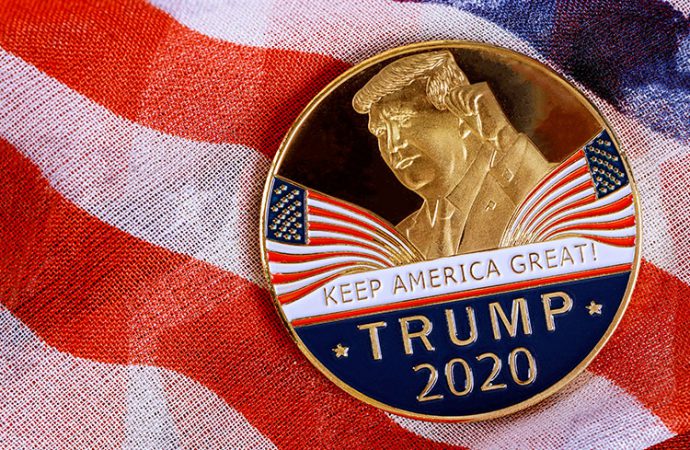Donald J. Trump has had an enormous impact on the US political structure. He has been the most controversial president ever in US history. He was the first president with no military, governmental, or public administration background—a businessman who only knew how to profiteer. Most people remember Trump’s era due to his controversial statements and
Donald J. Trump has had an enormous impact on the US political structure. He has been the most controversial president ever in US history. He was the first president with no military, governmental, or public administration background—a businessman who only knew how to profiteer. Most people remember Trump’s era due to his controversial statements and hardline narratives. Trump challenged the norms of American political culture. He changed the political landscape of US politics and reshaped political attitudes and his policies ultimately affected not only US politics but also US society as a whole.
Trump has consistently altered the presidency as well as US larger political culture. Most people in the US think that the Trump era changed the Republican Party into a populist, nationalist party, causing an impact on Republicans. The damage to the norms shifted the balance of power primarily in favour of the executive branch. Future presidents might emulate not just his personalised style of governing but also his frank remarks about presidential power, to the disadvantage of everyone involved.
Trump claims that his free use of social media, continuous practice of making unscripted campaign-style rally speeches, and willingness to ignore numerous centuries-old political norms constitute “modern presidential”. His presidency has been traditional at times. His court nominations are primarily suited to conservative objectives, his tax package is a long-standing Republican wish list, and his deregulation attempts fall beyond the party’s anti-big government stance. But how Trump acted and spoke about how he plans to govern the country was unusual. It remains to be seen if Donald Trump’s election will permanently alter how politics is conducted in the United States. After a quarter of his presidency, it should be evident that Donald Trump’s policies are not changing.
After Trump’s presidency reveals some characteristics that are unique to him, but it also underscores a basic reality about the character of the US presidency, it is profoundly troubling. The nature of any president’s power is immense and will reshape alliances and ideologies. Trump has imprinted the presidency, and how political players understand and portray the narrative of Trump’s mandate and the 2020 election amplifies or diminishes the political system. Trump has continued his political involvement assuring that public impressions of his administration and responses to his political moves remain unclear.
Trump may have championed a plan that would have resulted in a higher re-election record or at the very least, avoided alienating those who couldn’t accept the president’s style of performing his job. However, the partisanship between the political players and the trait is both problematic in the new political environment, especially when paired with the fierce electoral struggle that the public already characterises. After trump’s presidency, there is a strong argument growing in US society that Trump has introduced racial inequity into American society. A substantial amount of study identifying underlying injustices and institutions in American culture that existed long before Trump took office Trump has shown little interest in reducing racial disparities.
Trump’s decision not to accept the outcome of the 2020 election despite successful legal elections. There is now a larger tendency, especially after Trump in American political life in which politicians in both primary and general elections refuse to accept their opponents. This is in sharp contrast to past generations of politicians who were ready to place the defence of US democratic credibility over their personal political careers. But trump’s presidency has not only influenced US Political system but also their social practices, people are now more violent for instance the Supreme court decision against abortion but many of the US public didn’t accept it and also criticize directly on Supreme Court Judges, they started rallies and tweets against the Supreme institution of the country which is against the norms of US culture.
Political polarization has been a long-running topic in the United States, but most experts in the US argue that Trump has taken it a step further by using the border to polarize opinion, appealing to far-right parties in the United States that fear enlargement and are concerned about immigration harming traditional communities “White” tradition. It’s been continued even after Trump, the Republican Party and its voter are now more aggressive in their attitudes and behavior toward their opponents, especially with the Democrats, the exchange of words and comments are now harsher than before.
Trump’s presidency has not only influenced US politics and also social and institutional norms. Many political scientists argue that Trump’s political populism still affects US democracy and disregards the norms of US democracy. Many believe that US liberal democratic norms not only crumbled during the Trump era. In short, US politics has changed after Trump. If things keep continuing like this then US liberal democratic structure not only affects but also it’s social, cultural, and moral norms because all these characteristics of US society are established on Liberal democracy.
- US Political Landscape After Trump - September 12, 2022
- Why Does Pakistan Need to Go to IMF Now? - August 24, 2022
- National Debt as a Threat to National Security - August 10, 2022





















Leave a Comment
Your email address will not be published. Required fields are marked with *